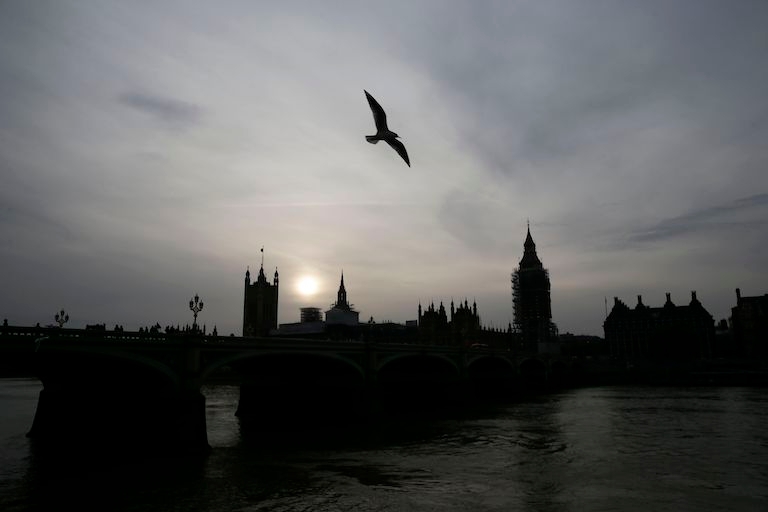Theresa May likes to avoid awkward rows at all costs: that much we already know. Today’s papers carry two stories showing this: she is said to be abandoning plans to give a Brexit speech just in case it causes further divisions in her Cabinet, and is also racking up what The Times estimates is a £230 million bill by delaying the refurbishment of Parliament.
Both the Cabinet and Parliament are dangerously unstable, with chunks falling from them every day. The latter, though, has been here a long time, is one of the most famous buildings in the world, and attracts vast numbers of tourists. Philip Hammond and Greg Clark don’t raise quite so much interest, oddly.
The Conservatives are keen to push back the decision on the works until after the 2022 general election because they are worried that taxpayers will be angry about the huge bill that it will incur. The problem is that avoiding conflict at all costs does include quite a hefty cost in this instance: it’s not just that these works are essential rather than luxury embellishments to the building, but also that civil servants have already left Richmond House, which is supposed to house MPs when they’re turfed out of the Palace, and are in a rented office block up the road.
But it’s unfair to blame Theresa May entirely for the planned delay to the refit of the Palace of Westminster. The reason she wants to give MPs the option to delay the start of the work isn’t just that she is a timid politician: it’s that all politicians are both ridiculously frightened of their own shadows and also rather selfish.
I don’t mean selfish in the sense that caricatures of MPs tend to suggest: money-grabbing, lying, in-it-for-themselves types. It’s that their reaction to the looming cost of repairing the Parliamentary Estate is all about them, and not about the matter in question. They are more frightened of what the public will think of them for spending money on their own building than they are of that building collapsing further. They are so frightened of their own shadows that they don’t see any value in standing by what is indisputably the right decision, and instead hope that some other group of MPs might instead shoulder the public wrath.
There is probably a little bit of jealousy in this too: MPs don’t want to be moved out of the beautiful parliamentary estate where you walk past a stone lion and unicorn every morning when you get off the tube, and where portraits of Elizabeth I greet you as you walk between meetings. They’d rather another cohort had to suffer the indignity of working in a rather more bland office block. All of us who work on the Parliamentary estate feel proud of its architecture, its history, and its quirks – even though few of us really know our way around its labyrinthine corridors particularly well. But if the current inhabitants are so jealously protective of the building they love that they keep it from being repaired, then that is the worst sort of destructive jealousy.
The great irony of this nervousness about telling voters that Parliament needs £4 billion spending on it is that voters already dislike politicians. They are already the least-trusted group. They were already disliked before the expenses scandal, which merely crystallised voter disgust, rather than created it. So if they spend £4 billion on renovating what isn’t their building anyway, but a UNESCO World Heritage Site that belongs to the people of Great Britain and Northern Ireland, then, yes, they might attract some ire. But chances are that this ire existed before the decision, and was merely expressed using the expenses scandal, rather than expensive but necessary building work.
If politicians weren’t so preoccupied with themselves, they would realise that the decision about refurbishment actually has very little to do with them. It’s about protecting an historic building that they only have a right to enter for a few years, but which has stood, in one form or another, since the 11th Century.







Comments